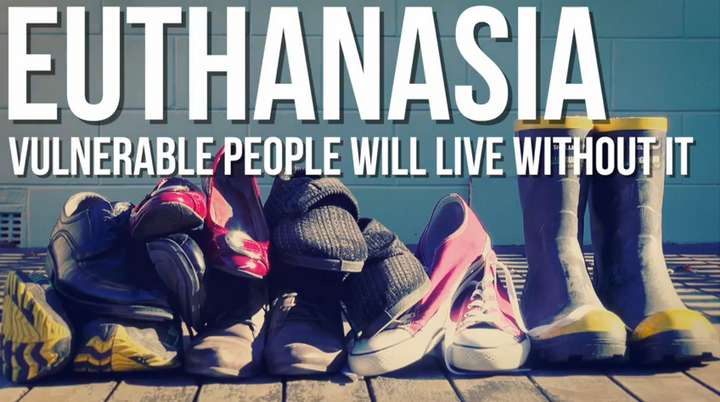
NZ Herald 25 July 2020
Family First Comment: The NZ Herald is working hard to allay the concerns around the flawed euthanasia bill.
• Apparently it’s not a ‘slippery slope’ – it’s ‘deliberate and considered reform’
• It concedes that pinpointing whether someone has 6 months to live is very difficult – yet it’s the key component of the bill!
• The Ministry of Justice agrees that somebody could be killed within 3-4 days – but apparently it’s likely to take months to do the paperwork. (We know it’s a government department – but pull the other one!)
• They question concerns around ‘duty to die’ & ‘abuse of the vulnerable’ (apparently there’s also other reasons – wow, that feels better then), and ‘increased suicide rates’ (we’re assured that “experts stress New Zealand has unique social, cultural, political and other factors”.
Sheesh. They don’t do a very good job at allaying the legitimate concerns around a flawed law.
Protect.org.nz
Euthanasia could soon be legal in New Zealand, but what exactly would that mean?
Could a patient tell their GP they want to die on a Wednesday and be dead by the weekend?
Is it inevitable that the proposed euthanasia law would be expanded from the terminally ill to those with depression? Or to children? And how secure are the safeguards?
These are some of the debates taking place in public meetings, on social media and over family dinner tables.
As part of the Herald’s ongoing coverage of the euthanasia and cannabis referendums, we take a look at some of the most headline-grabbing arguments around voluntary euthanasia and whether they stack up.
The ‘slippery slope’
It is one the most common arguments against voluntary euthanasia – that making it available for a small group of people, such as terminally ill adult patients who are in decline, will inevitably lead to it being broadened to more people, such as those with mental illness or young people.
Opponents usually point to the examples of the Netherlands and Belgium, where people can get access to euthanasia on the grounds of psychiatric illness, and where there is no minimum age for eligibility.
But there is no evidence that broadening the law is inevitable wherever euthanasia is legalised.
READ MORE: https://www.nzherald.co.nz/nz/news/article.cfm?c_id=1&objectid=12350755



